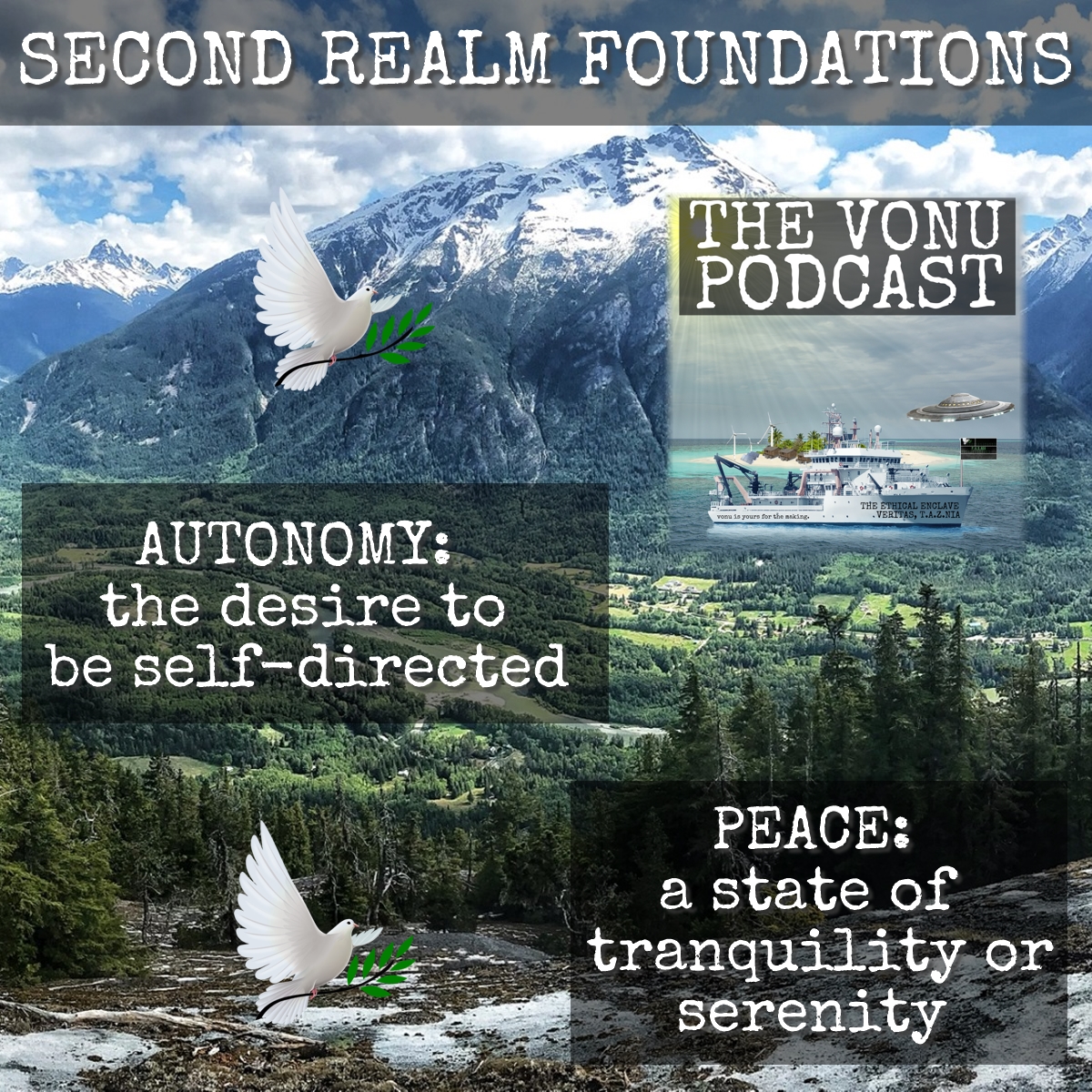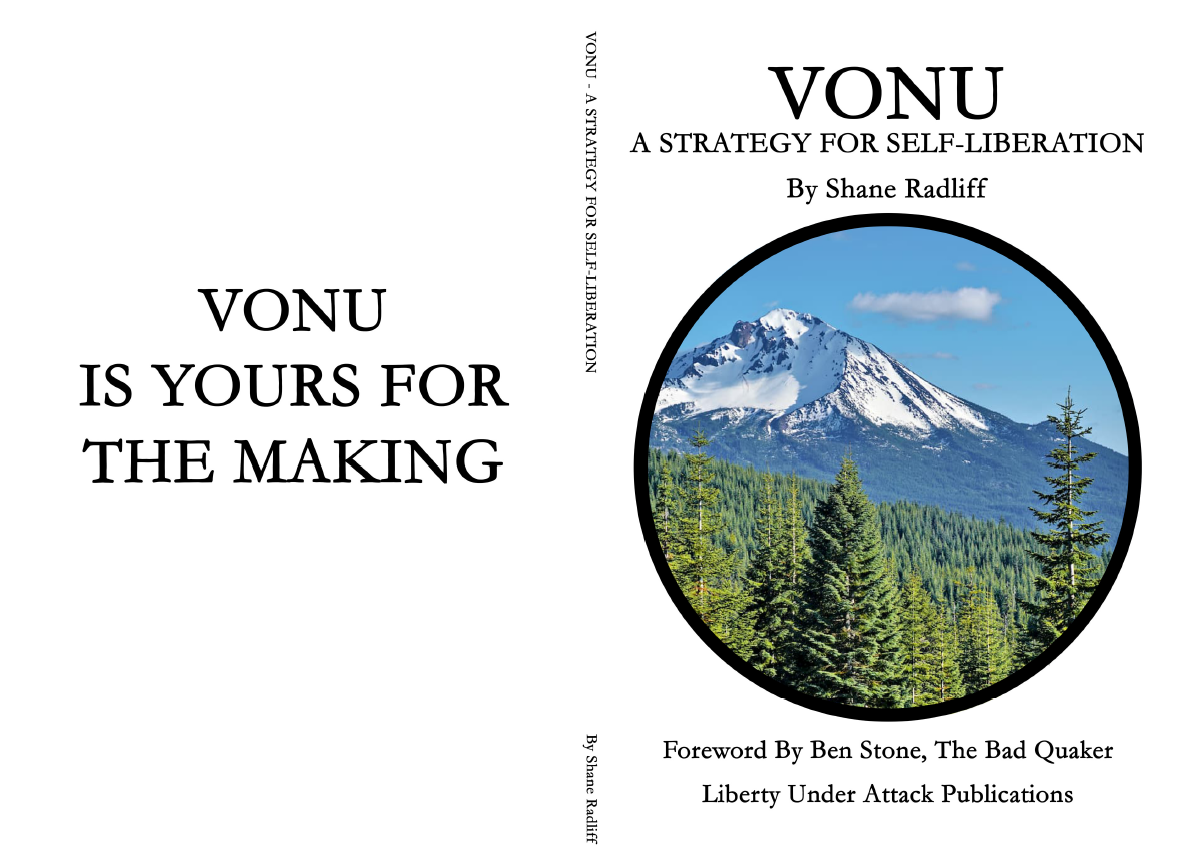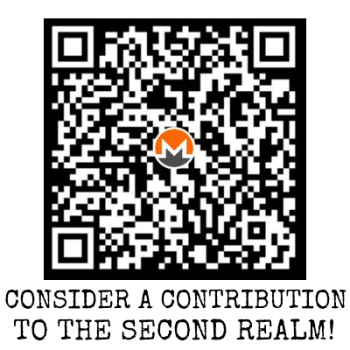Podcast: Play in new window | Download
Subscribe: Apple Podcasts | Android | Email | Google Podcasts | Stitcher | TuneIn | Spotify | RSS
[Editor’s Note: The following is an article by Smuggler or XYZ that I recently re-stumbled across after a number of years. Since it had been awhile, the content was really fresh for me and puts into words a lot of important background and foundational work pertaining to the Second Realm. For that reason, I’ve decided to re-release it as its own post here on the TVP website and feed. Please enjoy.]

Autonomy & Peace: Second Realm Foundations (by Smuggler/XYZ)
With the first post on this blog I would like to set the stage for what we are trying to accomplish.
About everyone agrees that there is something “wrong” with how the world operates today – and we chime into that choir. But our analysis and solutions are radically different. What is it that goes wrong? What should be done instead? And, most of all, who should do it? What is our reasoning?
In my opinion there is a single basic error at work that leads to the destruction of everything that is worth living for, at least for some of us. It is the erosion of the foundations of human interaction, human society, the whole human space itself. Big words, but they are not unfounded. Instead of whining about the precise details of what is going down the hill and what path it takes in the decline, let’s have a little refreshing air from what the foundations should be (in my opinion).
What should be the foundation of human society, and what do we choose as the foundation of our work on the Second Realm?
It starts out with a simple statement: Humans are not just animals like all others. No – we have that little unnerving feature of being able to reason, abstract, think, choosing responsibility. We are moral actors. That is what sets us apart and constitutes the cornerstone of where the animal kingdom ends and the human world begins. Contrary to what some ideologies try to teach us, or at least assume, is the simple statement that all (with very few, extreme examples that I actually cannot think of right now) humans are moral actors, and no matter what some say: We remain in that position and cannot get rid of it, we cannot delegate it, we cannot deny it. We are stuck in what we are and what makes us so special (even though some people spend countless words and trying to escape this minute fact).
For most readers of this blog, the above probably is a trivial truism, nothing to talk about again. However, it is not that simple. From that cornerstone comes the key to how people should live together – since they cannot realistically escape it, nor should they – and thus the basics for what governs the Second Realm. In short, it is the argument for autonomy.
Autonomy refers to the legitimacy and ability of single individuals making decisions for themselves, and giving themselves a moral law by which to operate. This does not mean that they will always be smart and successful in their decision-making, nor that their choices will be intellectually defendable or theologically sound (for those that care) – by no means. It only erects a borderline, a sphere that no other human being can justifiably ignore and trespass. The core of asserting autonomy is to see that it is the individual making choices for himself – not others choosing for him, nor he choosing for others. It is the line in the sand that says: “This is where I am the only one to decide”. Why? Because we are moral actors. That is one of the key rediscoveries the Enlightenment was said to have made.
At the same time, autonomy is a problem – at least for us. Since we assert that every human is a human actor, and thus everyone has autonomy, a statement of dire consequences was made. It is that of Equality of autonomy. There is no human underclass that lacks the legitimacy of making their own decisions. Nor is there a nature-given scheme in which the authority of making decisions for oneself is subdivided, increased or decreased between groups of humans and others. In this specific sense we are actually the same – we are equals. Out of this arises the problem of conflicting decisions of multiple autonomous humans. Each of them has the right to decide for himself, but since our decisions are often contrary to the interest and decisions of others, we get to what might be called the struggle of human society: Whose decision is to be implemented? Who has the right to decide now? The strongest? The oldest? The wisest? Equality of Autonomy forbids us from preferring the one over the other. It even forbids us to ask the masses for a vote. It puts us into the dire situation of either fighting and dropping our asserted autonomy – or to find a solution.
Surely many solutions have been proposed. Actually most of recorded history concerns itself with these kinds of conflicts. All those big political theories are about exactly this single question: Who decides in case of conflict? There are some that claim that no solution is necessary, that might makes right and that we should simply solve this issue by means of social Darwinism.
In all honesty I have never met someone who still holds to that position when his opponent is the one to put it into practice first and strongest. It is an animal way of solving conflict – at least at first sight. In the end, even animals are “more human” in that regard than many men are. It is the “don’t think but kill” mentality, the easiest shortcut for people to take if they are either morally damaged, too lazy to search for other solutions or simply too full of themselves. “Yay,” one might say “You are arguing in circles and without enough reason to argue at all.” Maybe, but do not most healthy people prefer peace over war? Not risking to be killed in a duel about who eats the steak? Who proposes “might makes right” has given up the foundation of reason itself – there is no means of any reasoning anymore. Is not reason itself not about killing those of different opinion but rather finding out what is “true” or at least “probable”? If it is, might there be not a similar measure to what makes human conflict reasonable? I suggest so, as much as reasoning is about finding “Truth”, conflict-resolution is about “Peace“.
Do not get me wrong: I am not speaking about “Peace by all means”. Rather I only say that it is what we long for. As much as “Truth” is not about people necessarily ending their line of argument “Peace” is not about people simply starting to love each other under all circumstances. Rather, it is “keep the Peace as long as it is up to you”.
Therefore, we are still lacking a solution for conflict. How can we both preserve Autonomy and Peace? The answer to it is rather trivial if you do not have a hidden agenda. One has to create spheres of legitimate, justifiable, undeniable and exclusive decision making for each individual. This solution is so simple that it has been found thousands of years ago by people that did not have the enormous body of philosophical reasoning available that we have. To the contrary, much of our political philosophy and the excrements of today’s intellectual class is just about denying this solution. It is the core of most of our political battles and inter-personal animosities. Nevertheless, it is just a small word, a simple concept, something that does not hurt anyone by itself. Not magical, complicated or requiring years of public education. Every child knows it before it has been taught all about it: Property.
One can spend countless hours on questions of what can be property, how one comes about to own something as property, and a myriad of other questions. Most of those however are just smoke and fog. Because it is actually simple. At least if one is aware that it is just the solution to the conflict-problem of equal autonomy of moral actors called “humans”. As long as we are willing to remember its purpose – the ability to act on or with things that exclude conflicting decisions – it remains simple. Surely, details can be discussed and different schools of thought on property acquisition and abandonment came into existence. Those specifics are often moot points to discuss in reality. It matters little to me how those questions are answered by someone five thousand miles away from me (because it is rarely the case I am in conflict with someone not present). As long as property acquisition leads to exclusivity of control over it and gives the owner space for autonomous decision making the problem can be considered solved in most cases. It does however require that autonomy of each individual is actually respected. And this is where the rubber hits the road and the frogs the fan:
When one looks at the battle of ideologies today and the ruffling of feathers of the political class, one can see that no matter what they say, in the end it comes down to one thing: “No, we do not respect the autonomy of individuals nor do we think that peace is a goal to strive for.” That is all what politics and social struggle is about. It is the focus of political philosophy from almost all ends. Finding excuses to deny autonomy – and therefore moral-actor-being – to the one or the other group of people. Excuses for conflict, war, theft. That’s contemporary politics in two five sentences, nothing else worth knowing about it.
Thus we have come to the reason why the Second Realm is so important to me, and also what its foundations are. It is about respecting the Autonomy of each individual and keeping the Peace. That given, we can finally focus on making progress, winning the survival-struggle, being fully human. I am simply tired of being treated as a dumb animal – I AM ALIVE AND I AM HUMAN. I guess I made that clear now.
Of course it does not really stop there. As much as the Second Realm is something I am longing for, it is also something many others want. Something many others need from the depths of their hearts. But I cannot speak for them. They are autonomous beings as well, and have not made me their speaker or master. It is just me, having the same hurting longing for liberty. It’s now up to us to cooperate in making progress along that road.
There are some final words missing for this article so far, and I intend to at least touch one open question without doing it full service. Above I chose to put Autonomy at the root of my reasoning. Not everyone will agree. There are three other roots for questions of human society. One is that there is no root at all, that nothing has sense, purpose or measure. I ignore that basis since I simply prefer people of positive outlook at a minimum common ground to talk with. If there is nothing to judge by, there is no reason to think at all.
Another possible root is the statement of fulfilling a higher purpose and law, some transcendent and – for the outsider – elusive scheme of things. That might be true or not. However, it does not have to conflict with what I said above. Many of these transcendent laws that we find in major religions around the world simply include all of the above but add some more to it. Let’s agree on the basics and see where it leads us. And those of the higher purposes that are non-religious in nature … let’s just say that I do not care that much. Call me arrogant, but I have better things to do.
The last of those different roots for society is a much different kind of beast. It is the assumption that “Life” and “Survival” are the roots of social decision making. For some people this might be what they feel and need – yes, it can actually be argued for. However, it cannot be the end of the question. No matter if a “life”-based social ethic actually leads to preserving life is out of scope for this article. One thing however is not: What is it that makes Life so valuable, so important? What makes the survival of an ant different from the survival of a man? Is it maybe that life for humans is living as humans should, first being moral actors and enjoying autonomy in peace? Or is it just spreading our genes (if so, see the question of no root at all. I owe nothing to evolution or nature, thank you).
Life-based arguing however comes from the deep down doubts of if the conclusion of autonomy, property, is going too far. Surely there are people that have a hard time on their own, no question. But should we not be self-enabled to help others out of our own free choices – our autonomy, in peace, using our property? Many doubt that we would, and to those I pose the question: “Would you? Or is it maybe that you don’t want to bear the weight of liberty equally – granting liberty to others while enjoying it yourself.”
Be seeing you.
~~~
HEALTH LIBERATION/SELF-LIBERATION SPECIAL OFFER:
Interested in your own AquaCure? Save $125 with coupon code “vonu“, and help support the P.A.Z.NIA Department of Health/Wellness at the same time!





